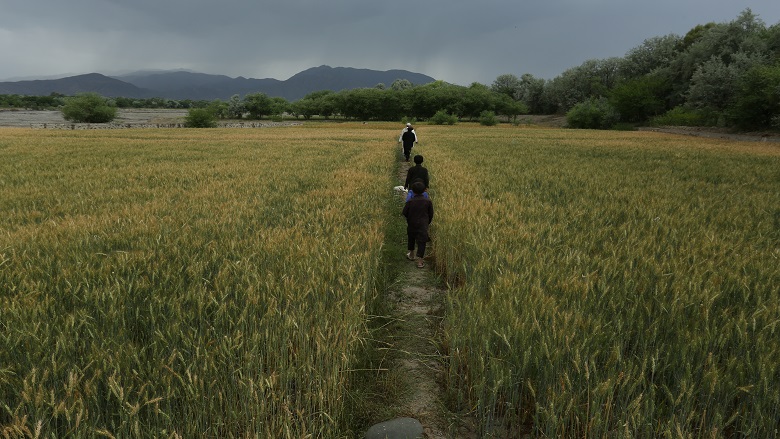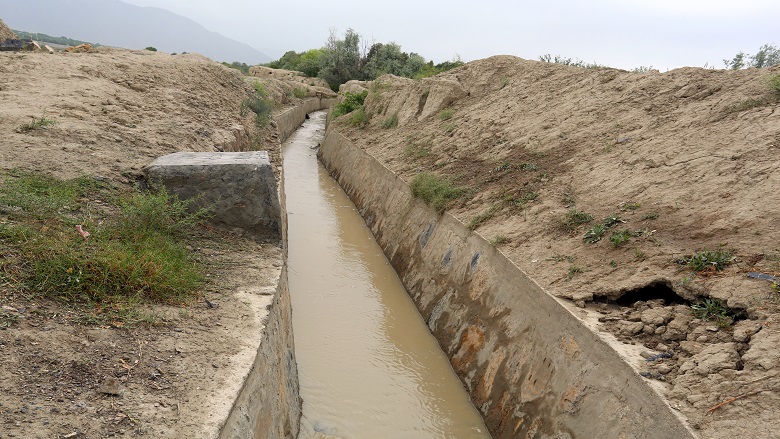Ismaelkhil Mandozayi District, Khost Province –The azan sounds from the village mosque as people gather for the noontime prayer. Shir Khan, 39, leaves off working on his crops and walks past fields of ripening wheat, across the flowing waters of the irrigation canal, toward the village mosque.
It has been more than 15 years since Shir Khan returned from Pakistan to his native village, Melani Kalay, more than 15 kilometers west of Khost city in southeastern Afghanistan. Nestled in a broad sweeping valley, and surrounded by bare brown hills, the inhabitants of the village have long endured both floods and water shortages. In recent years, however, they have seen a great deal of improvement in their lives with the help of the National Solidarity Programme (NSP).
Some 15 years ago the village had no irrigation canal nor enough water for its people. The farmlands in the village were dry, especially in summer, the peak growing season, and locals had to work as day laborers in neighboring villages or venture out to the provincial capital of Khost city to earn a bare living.
“We had no water to irrigate our lands,” remembers Shir Khan, who farms a tiny patch of land (2 jeribs or 0.4 hectare) in the village. “As all the male villagers worked as unskilled agricultural laborers and there was never enough labor, we never had enough money to look after our families.” The irrigation canal, he says, has greatly improved the situation.


